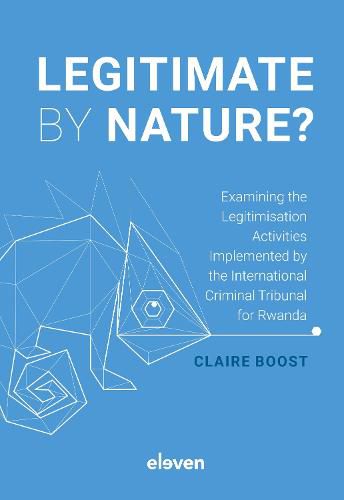Readings Newsletter
Become a Readings Member to make your shopping experience even easier.
Sign in or sign up for free!
You’re not far away from qualifying for FREE standard shipping within Australia
You’ve qualified for FREE standard shipping within Australia
The cart is loading…






This title is printed to order. This book may have been self-published. If so, we cannot guarantee the quality of the content. In the main most books will have gone through the editing process however some may not. We therefore suggest that you be aware of this before ordering this book. If in doubt check either the author or publisher’s details as we are unable to accept any returns unless they are faulty. Please contact us if you have any questions.
International crimes cause widespread victimisation and destruction, leading to social disruption that may take generations to repair. Over the years, the international community has established international courts to end the culture of impunity in relation to such crimes and to enforce a culture of accountability. A critical success factor for these courts is to ensure that they are perceived as legitimate in post-conflict societies.
Established after the 1994 genocide against the Tutsi ethnic group, the International Criminal Tribunal for Rwanda (ICTR) was active for 20 years and closed its doors in December 2015. This book identifies the legitimacy challenges faced by the ICTR, based in Arusha, Tanzania, and its subsequent legitimisation activities implemented to gain, maintain and repair legitimacy, while also examining which stakeholders the ICTR targeted in its efforts to establish and/or maintain its legitimacy.
This book is intended for policy-makers and practitioners working in the fields of international criminal law, human rights and transitional justice. More specifically, it addresses professionals working for international criminal courts or tribunals, including those working at the International Residual Mechanism for Criminal Tribunals in Arusha and The Hague. This book also aims to reach individuals involved in the design and implementation of external relations activities and outreach programmes.
$9.00 standard shipping within Australia
FREE standard shipping within Australia for orders over $100.00
Express & International shipping calculated at checkout
This title is printed to order. This book may have been self-published. If so, we cannot guarantee the quality of the content. In the main most books will have gone through the editing process however some may not. We therefore suggest that you be aware of this before ordering this book. If in doubt check either the author or publisher’s details as we are unable to accept any returns unless they are faulty. Please contact us if you have any questions.
International crimes cause widespread victimisation and destruction, leading to social disruption that may take generations to repair. Over the years, the international community has established international courts to end the culture of impunity in relation to such crimes and to enforce a culture of accountability. A critical success factor for these courts is to ensure that they are perceived as legitimate in post-conflict societies.
Established after the 1994 genocide against the Tutsi ethnic group, the International Criminal Tribunal for Rwanda (ICTR) was active for 20 years and closed its doors in December 2015. This book identifies the legitimacy challenges faced by the ICTR, based in Arusha, Tanzania, and its subsequent legitimisation activities implemented to gain, maintain and repair legitimacy, while also examining which stakeholders the ICTR targeted in its efforts to establish and/or maintain its legitimacy.
This book is intended for policy-makers and practitioners working in the fields of international criminal law, human rights and transitional justice. More specifically, it addresses professionals working for international criminal courts or tribunals, including those working at the International Residual Mechanism for Criminal Tribunals in Arusha and The Hague. This book also aims to reach individuals involved in the design and implementation of external relations activities and outreach programmes.